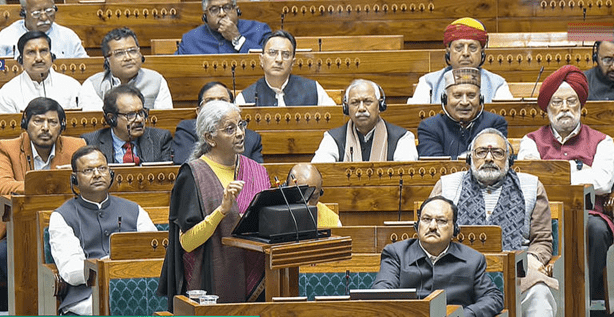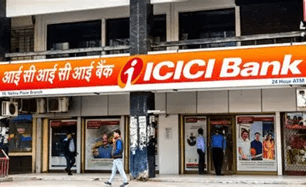Although the reprieve is only temporary, Indian pharmaceutical companies are not directly targeted by trump tariffs.
As US President Donald Trump intensifies his trade offensive, India’s pharmaceutical industry is developing a multifaceted strategy to protect itself from possible tariff shocks.
While drug formulations and active pharmaceutical ingredients (APIs) are exempt from the most recent 25 percent additional tariff hike under the ongoing Section 232 investigation, the industry is not taking any chances.
According to Sudarshan Jain, Secretary General of the Indian Pharmaceutical Alliance, “the pharmaceutical sector is excluded from immediate tariff imposition by the recent executive order by the US Administration.” “Generic medications are crucial for providing affordable healthcare in the United States and usually have extremely narrow profit margins,” he stated.
However, the exemption is only valid for a limited time. The US Department of Commerce’s Section 232 investigation, which was started to determine whether pharmaceutical imports pose a national security risk, is anticipated to be completed by
Despite the current exemption, Canadian pharmaceutical companies are preparing for a possible disruption by acquiring US ( trump ) assets, diversifying their geographic operations, strengthening their supply chains, and hiring consultants.
For example, Syngene International recently paid $36.5 million for its first US (trump ) biologics facility, while Aurobindo Pharma recently paid $250 million for the US-based Lannett Company. The goal of all these purchases is to establish a manufacturing presence in the US ( trump ) and most likely receive some tariff protection.
Others are diversifying, such as Natco Pharma, which generates the majority of its revenue in the US. For about Rs 2,000 crore, it purchased a 35.75 percent share in the South African pharmaceutical company Adcock Ingram Holdings Ltd. last month. The goal of this acquisition is to increase Natco Pharma’s presence in the ( Sources: Moneycontrol )

What has been the impact of new tariffs on pharmaceutical stocks?
New tariffs have significantly impacted pharmaceutical stocks. Here’s a breakdown of the key points:
- Stock Decline: Following the news of the tariffs, shares of Indian pharmaceutical companies saw a significant drop. The Nifty Pharma Index also experienced a sharp decline, indicating a negative impact on the entire sector.
- Tariffs and Uncertainty: Although some initial tariffs exempted pharmaceutical products, threats by the US President to impose tariffs of up to 250% in the future have increased investor uncertainty. This uncertainty is also a major reason for the fall in stock prices.
- Dependence on the US Market: Several major Indian pharma companies, such as Aurobindo Pharma, Dr. Reddy’s, Lupin, and Sun Pharma, earn a large portion of their revenue from the US market. Therefore, the possibility of tariffs has had the most significant impact on their shares.
- Impact on Drug Prices: Experts believe that if these tariffs are implemented, the prices of Indian generic drugs in the US could rise. This would also harm American consumers, as they are highly dependent on these low-cost drugs.
- Future Strategy: Pharmaceutical companies are now formulating new strategies to deal with this challenge, such as establishing manufacturing facilities in the US and expanding their business into other markets.
Here are some prominent Indian pharmaceutical companies that have been mentioned in recent reports and analyses:
- Sun Pharmaceutical Industries Ltd.
- Divi’s Laboratories
- Cipla Ltd.
- Dr. Reddy’s Laboratories Ltd.
- Lupin Ltd.
- Aurobindo Pharma Ltd.
- Mankind Pharma Ltd.
- Zydus Lifesciences Ltd.
- Alkem Laboratories Ltd.
- Gland Pharma Ltd.
- Glenmark Pharmaceuticals Ltd.
- Biocon Ltd.
- Ipca Laboratories Ltd.
- Ajanta Pharma Ltd.
- J B Chemicals & Pharmaceuticals Ltd.
On Thursday, August 7, 2025, the Indian stock market experienced a volatile trading session. The BSE Sensex closed at 80,623.26, marking a marginal increase of 79.27 points or 0.1%. The Nifty 50 also saw a slight rise, ending at 24,596.15, up by 21.95 points or 0.09%.
1. Stock Market Reaction:
- The Indian stock market, including the Nifty 50 and BSE Sensex, has seen a volatile period with benchmark indices dropping for several consecutive sessions.
- Export-oriented sectors with high exposure to the US market, such as textiles, gems and jewellery, seafood, and auto ancillaries, have been hit the hardest. Many of these industries have reported putting manufacturing on hold for US orders due to the unpredictability of pricing.
- While the market has experienced some recovery from its lows, the overall sentiment remains cautious, with investors awaiting a clear resolution.
2. Economic Impact:
- The US has imposed a total tariff of up to 50% on certain Indian goods, which is a combination of a 25% tariff on Indian imports and an additional 25% tariff as a penalty for India’s continued purchase of Russian oil.
- This move is expected to have a significant impact on India’s GDP, with various analysts predicting a decline of anywhere from 0.2% to 1%.
- Sectors with thin margins, such as textiles and gems and jewellery, face a “doomsday” scenario, according to some industry experts, as the high tariffs could make their exports economically unviable.
- The tariffs have also put pressure on the Indian rupee, which has been weakening against the US dollar.
3. India’s Response:
- The Indian government has called the US actions “unfair, unjustified, and unreasonable.”
- Prime Minister Narendra Modi has stated that India will not compromise on its national interests, particularly those of its farmers and dairy sector, and that the country is ready to “pay a heavy price” for its stance.
- The government is exploring measures to support affected industries and is pushing for a “Brand India” strategy to reduce reliance on the US market.
- Officials are also pursuing diplomatic channels, with a US delegation scheduled to visit India for trade talks, which analysts believe could be a key factor in resolving the situation
Sources: Moneycontrol
















Thank you for your sharing. I am worried that I lack creative ideas. It is your article that makes me full of hope. Thank you. But, I have a question, can you help me?
yes